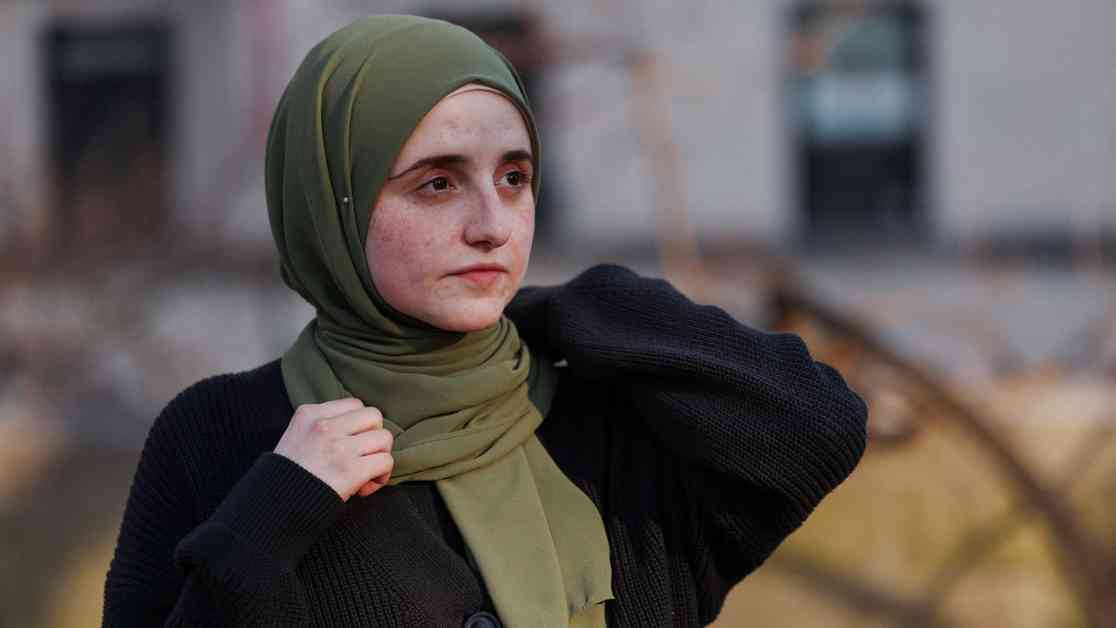Last Sunday, Noor Abdalla drove from her apartment in Morningside Heights to St. Paul and St. Andrew United Methodist Church, on the Upper West Side. She was with her sister and her month-old son, Deen; the occasion was an alternative graduation ceremony for students at colleges and universities in New York who had been expelled or suspended for protesting Israel’s war in Gaza. Inside the church, preparations were under way, with photographs of the protests projected on a far wall and signs hung elsewhere that read “WAR CRIMINALS OFF OUR CAMPUS” and “FREE PALESTINE.” Abdalla made her way to the pastor’s office, where she left Deen sleeping soundly in his stroller. “Honestly, he’s a really good baby,” Abdalla, who is twenty-eight, told me. “Obviously, I’m biased; I’m his mom. But he’s really good. You know, as long as he’s fed, he’s happy.”
Noor Abdalla, a dentist who grew up in Flint, Michigan, is a U.S. citizen. Her husband, Mahmoud Khalil, a Palestinian who recently graduated from Columbia University’s School of International and Public Affairs, is a permanent green-card holder. He was arrested in March, during Ramadan, as the couple returned to their apartment after iftar, and he is currently being held in an ICE detention center in Louisiana. Khalil had been worrying for days that authorities were after him. He was the subject of a doxxing campaign on social media, with one Columbia professor asking Secretary of State Marco Rubio to take “strong action.” But, as Khalil and Abdalla walked home that night, Khalil seemed calm. “That was the first night that he was, like, ‘I’m being dramatic, nothing is gonna happen,’ ” Abdalla told me. Shortly after reaching the lobby of their building, Khalil was handcuffed and led away. Abdalla was eight months pregnant. She hasn’t seen him in person since.
In the weeks that followed, at least seventy-eight more students were arrested as part of the university’s wider crackdown on antiwar protests. In April, Abdalla’s water broke. A friend assisted her during her first contractions. Her mother, who was set to fly in from Michigan that day, arrived a few hours earlier than planned to insure she would be with her daughter at Lenox Hill Hospital when the baby was born. Khalil and Abdalla had narrowed a list of names down to three—Deen was one, and the other options were Younes and Idriss. Through a friend, Khalil had sent her flowers along with a card addressed to “Oum Deen” (“Deen’s mother”). Abdalla wasn’t sure if Khalil, who had been “on the fence” about the name, was joking. Soon after, they spoke on the phone and made a final decision. “I was so scared that he was going to miss the birth of Deen,” she told me. “It was something I would get so emotional about, and it ended up happening, and I was O.K. I survived.”












